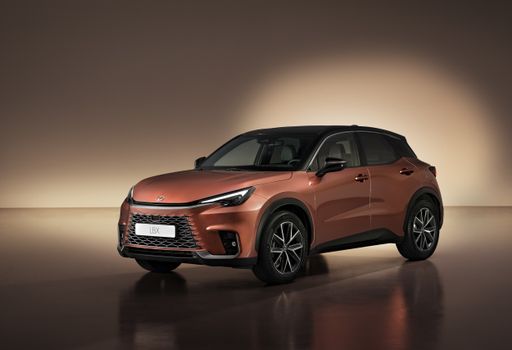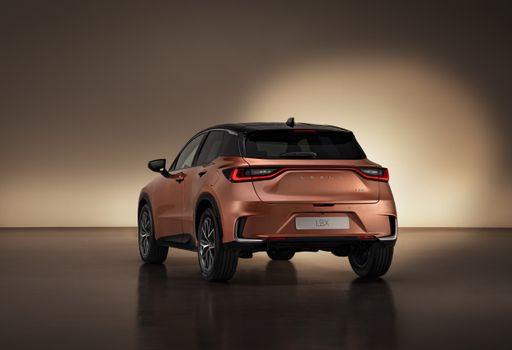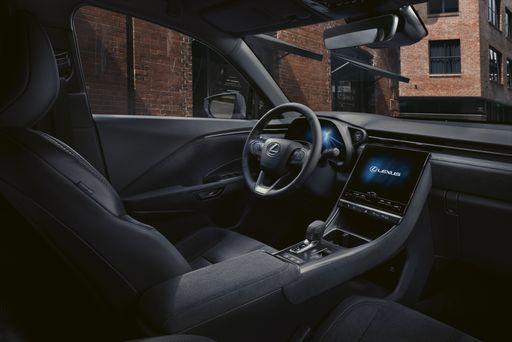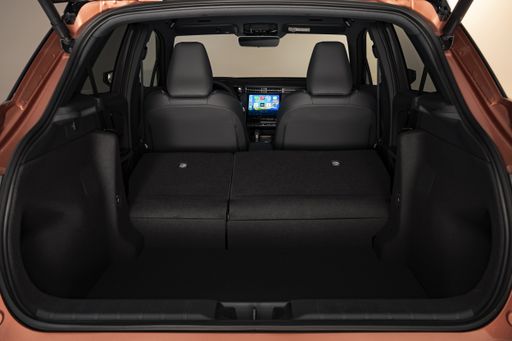Lexus LBX vs Toyota Yaris - Differences and prices compared
Compare performance (136 HP vs 280 HP), boot space and price (28300 £ vs 21900 £ ) at a glance. Find out which car is the better choice for you – Lexus LBX or Toyota Yaris?
Costs and Efficiency:
Price and efficiency are often the first things buyers look at. Here it becomes clear which model has the long-term edge – whether at the pump, the plug, or in purchase price.
Toyota Yaris has a distinct advantage in terms of price – it starts at 21900 £ , while the Lexus LBX costs 28300 £ . That’s a price difference of around 6420 £.
Fuel consumption also shows a difference: Toyota Yaris manages with 3.80 L and is therefore to a small extent more efficient than the Lexus LBX with 4.50 L. The difference is about 0.70 L per 100 km.
Engine and Performance:
Power, torque and acceleration are the classic benchmarks for car enthusiasts – and here, some clear differences start to show.
When it comes to engine power, the Toyota Yaris has a significantly edge – offering 280 HP compared to 136 HP. That’s roughly 144 HP more horsepower.
In acceleration from 0 to 100 km/h, the Toyota Yaris is clearly quicker – completing the sprint in 5.50 s, while the Lexus LBX takes 9.20 s. That’s about 3.70 s faster.
In terms of top speed, the Toyota Yaris performs distinct better – reaching 230 km/h, while the Lexus LBX tops out at 170 km/h. The difference is around 60 km/h.
There’s also a difference in torque: Toyota Yaris pulls clearly stronger with 390 Nm compared to 185 Nm. That’s about 205 Nm difference.
Space and Everyday Use:
Whether family car or daily driver – which one offers more room, flexibility and comfort?
Both vehicles offer seating for 5 people.
In curb weight, Toyota Yaris is somewhat lighter – 1090 kg compared to 1280 kg. The difference is around 190 kg.
In terms of boot space, the Lexus LBX offers somewhat more room – 332 L compared to 286 L. That’s a difference of about 46 L.
In maximum load capacity, the Lexus LBX performs hardly perceptible better – up to 994 L, which is about 59 L more than the Toyota Yaris.
When it comes to payload, Toyota Yaris hardly perceptible takes the win – 525 kg compared to 475 kg. That’s a difference of about 50 kg.
Who wins the race in the data check?
The Toyota Yaris sits well ahead of its rival in the objective data comparison.
This result only shows which model scores more points on paper – not which of the two cars feels right for you.
Costs and Consumption
View detailed analysis
Engine and Performance
View detailed analysis
Dimensions and Body
View detailed analysis

Toyota Yaris
Lexus LBX
The Lexus LBX wraps premium touches and a surprisingly spacious cabin into a compact crossover that’s perfectly at home in town or heading out on longer drives. It wears the badge with quiet confidence, serving up a refined ride and clever packaging for buyers who want Lexus polish without shouting for attention.
details



Toyota Yaris
The Toyota Yaris is a sprightly city hatch that packs clever packaging, surprising comfort and fuel-sipping manners into a neat, easy-to-park package. It rewards sensible buyers with low running costs, friendly ergonomics and a forgiving drive, delivered with Japanese reliability and just enough personality to make errands feel a little less ordinary.
details

Costs and Consumption |
|
|---|---|
|
Price
28300 - 40000 £
|
Price
21900 - 46700 £
|
|
Consumption L/100km
4.5 - 4.8 L
|
Consumption L/100km
3.8 - 9.5 L
|
|
Consumption kWh/100km
-
|
Consumption kWh/100km
-
|
|
Electric Range
-
|
Electric Range
-
|
|
Battery Capacity
-
|
Battery Capacity
-
|
|
co2
102 - 110 g/km
|
co2
87 - 215 g/km
|
|
Fuel tank capacity
36 L
|
Fuel tank capacity
36 - 50 L
|
Dimensions and Body |
|
|---|---|
|
Body Type
SUV
|
Body Type
Hatchback
|
|
Seats
5
|
Seats
4 - 5
|
|
Doors
5
|
Doors
3 - 5
|
|
Curb weight
1280 - 1365 kg
|
Curb weight
1090 - 1356 kg
|
|
Trunk capacity
255 - 332 L
|
Trunk capacity
141 - 286 L
|
|
Length
4190 mm
|
Length
3940 - 3995 mm
|
|
Width
1825 mm
|
Width
1745 - 1805 mm
|
|
Height
1560 mm
|
Height
1455 - 1500 mm
|
|
Max trunk capacity
992 - 994 L
|
Max trunk capacity
935 L
|
|
Payload
455 - 475 kg
|
Payload
289 - 525 kg
|
Engine and Performance |
|
|---|---|
|
Engine Type
Full Hybrid
|
Engine Type
Full Hybrid, Petrol
|
|
Transmission
Automatic
|
Transmission
Automatic, Manuel
|
|
Transmission Detail
CVT
|
Transmission Detail
CVT, Manual Gearbox, Automatic Gearbox
|
|
Drive Type
Front-Wheel Drive, All-Wheel Drive
|
Drive Type
Front-Wheel Drive, All-Wheel Drive
|
|
Power HP
136 HP
|
Power HP
116 - 280 HP
|
|
Acceleration 0-100km/h
9.2 - 9.6 s
|
Acceleration 0-100km/h
5.5 - 9.7 s
|
|
Max Speed
170 km/h
|
Max Speed
175 - 230 km/h
|
|
Torque
185 Nm
|
Torque
390 Nm
|
|
Number of Cylinders
3
|
Number of Cylinders
3
|
|
Power kW
100 kW
|
Power kW
85 - 206 kW
|
|
Engine capacity
1490 cm3
|
Engine capacity
1490 - 1618 cm3
|
General |
|
|---|---|
|
Model Year
2025
|
Model Year
2024 - 2025
|
|
CO2 Efficiency Class
C
|
CO2 Efficiency Class
B, G
|
|
Brand
Lexus
|
Brand
Toyota
|
What drivetrain options does the Lexus LBX have?
Available configurations include Front-Wheel Drive or All-Wheel Drive.




